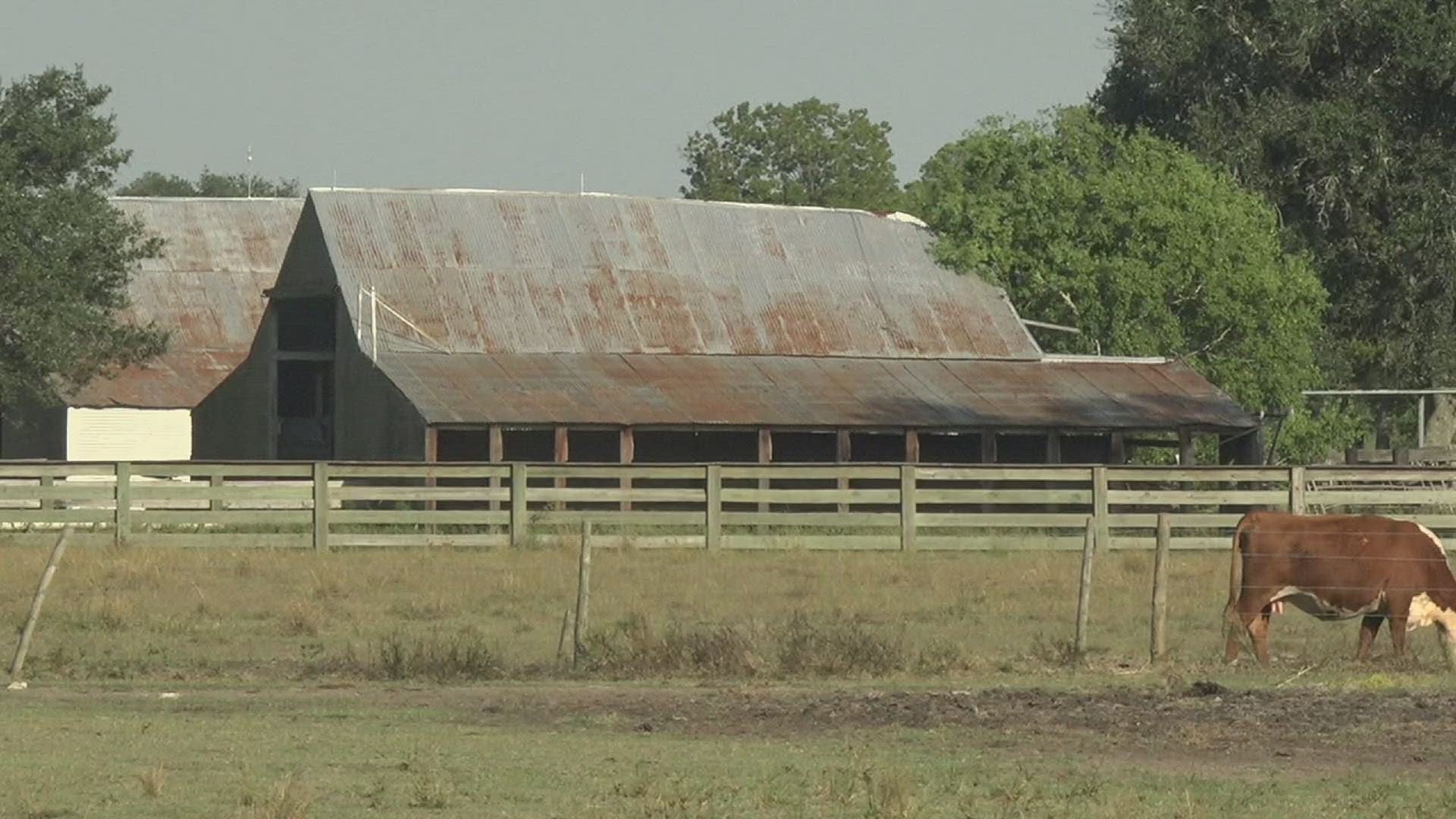WINNIE, Texas — A Southeast Texas farmer's fight has made it all the way to the U.S. Supreme Court.
Ritchie Devillier of Winnie said that the rebuilding of Interstate 10 has been creating big problems on the land his family has owned for four generations.
He and his family have never had an issue with flooding until the Texas Department of Transportation (TxDOT) started rebuilding I-10, according to Devillier.
900 acres of farmland has been turned into a 900 acre lake twice.
This comes six years after Harvey and four years after Imelda.
"North of I-10, completely submerged, and that's happened twice. When it happens, water is impounded on us for a week or more at a time," said Devillier.
Devillier believes TxDOT is responsible for the flooding of his land, during both storms. He and his lawyer blame the highway's concrete median that was added in the early 2000s.
All of the extra concrete acts like a dam, according to Devillier.
“The Texas Department of Transportation built a dam along I-10 that was meant to keep the southside of the road dry in heavy rain... that means when it rains heavily, Richie Devillier's ranch is now a lake instead of a ranch," said Robert McNamara, Devillier's lawyer.
Devillier said the losses from the floods took a massive toll on him and his family's way of life.
"We lost, I think it was about 60 head of cattle, seven horses and one colt...and numerous calves, just don't know how many calves," Devillier told 12News.
McNamara works with The Institute for Justice, which describes itself as a Libertarian nonprofit public interest law firm.
The state moved the case to federal court according to McNamara.
Recently, the Fifth Circuit Court of Appeals sided with the state. McNamara hopes the Supreme Court will feel differently.
"This is a case about government accountability. If the government is going to turn a ranch into a lake, the government has to pay for what it has taken. We're asking the Supreme Court to enforce the constitution and force Texas officials to do what the constitution clearly orders them to do," McNamara said.
Devillier wants what he believes he's owed and that future generations should not have to carry the burden of the state's design mistakes.
"I don't want to live in fear and I don't want to put this on my children going forward. I'm not gonna have them worrying about when is this gonna happen again. I'm not gonna do it," said Devillier.
The Supreme Court will be hearing the case as early as January or February of 2024 and a final ruling could come by May 2024, according to McNamara.
Also on 12NewNow.com...

